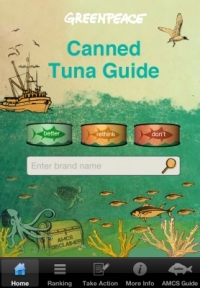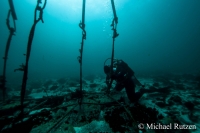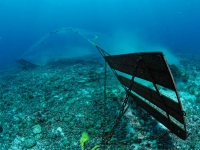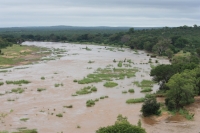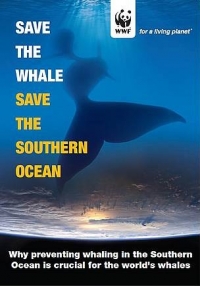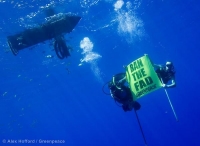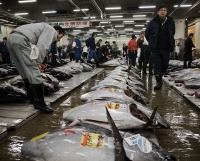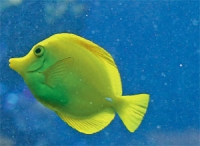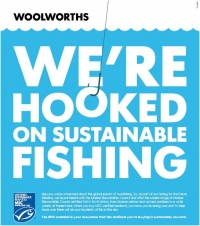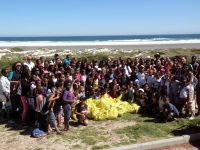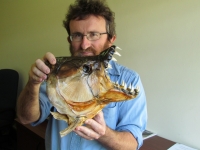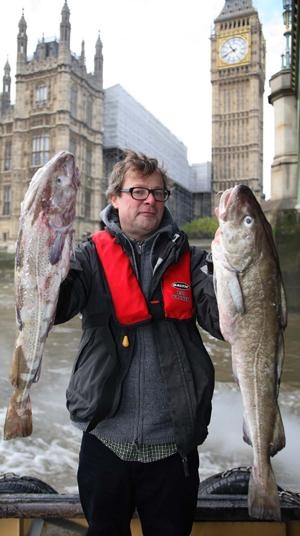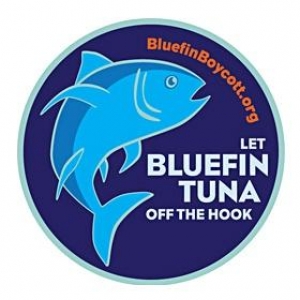Are you eating the fish you ordered? Up to half of the fish is mislabelled in South Africa. Who can we trust?
Tuna is in trouble. It's is one of the world’s favourite fish, and the staple protein of millions, but it is overfished globally.
A team of Stellenbosch University researchers has developed an eco-friendly and probably highly effective shark barrier, known as 'Sharksafe.' This is an alternative for shark nets which result in the death of thousands of sharks and other sea animals every year.
A recent Green Times article focuses on Dr Sylvia Earle, one of the most famous marine biologists in the world who in her lifetime has spent more time underwater than just about anyone else on the planet.
The US is about to treat the world to the first genetically modified meat: a mutant salmon that could wipe out wild salmon populations and threaten human health - but we can stop it now before our plates are filled with suspicious Frankenfish.
Our environment is becoming more and more under threat every day, and there seems to be no end to this trend or reversal thereof in sight.
Last month in Hobart, Tasmania, members of the Commission for the Conservation of Antarctic Marine Living Resources met to discuss several proposals to create marine protected areas extending from the Antarctic continent well out to sea.
Some experts say the world is heading for the "sixth extinction." Unlike the five separate mass extinctions millions of years ago, this one will be caused not by natural events, but by a single species: humans.
Less than 1% of the world’s oceans are protected from all human activity. We are fishing ourselves into a crisis that threatens global fish stocks, marine biodiversity and local economies.
That marine biologists found elevated traces of radioactive cesium in Pacific bluefin tuna is not reason enough to stop eating the fish. That the fish are often caught when they are only 1 or 2 years old and sold in markets and grocery stores before reaching maturity is.
Warming oceans and climate may have an unexpected side effect - shrinking fish. Their body weight could decline by 14-20 percent in 50 years, says a Canadian study based on computer modelling of 600 ocean fish species.
I am amazed to see the interest in our swimming pool conversion into a natural habitat for wildlife, which might also include ourselves, if needs be. Some readers would also like to put their pools to better use, so I will share my learning as we go along.
Would you like to purchase fish sourced from a supply chain and fishery certified against the world's most rigorous sustainability standards? This must be the most responsible way to do your fish shopping.
The eyes of the world will be focused on the health of our oceans when World Oceans Day is celebrated on Friday, 8 June.
CapeNature is currently in negotiations with the Tierkranz Trust which will see the Dwars River under formal protection through the establishment of a Protected Environment.
Tigerfish are helping scientists to find out more about the geological history of Africa – and in the process, scientists are discovering what might turn out to be new species of this much sought-after and ferocious game fish. It seems that the number of tigerfish species has been underestimated.
To some degree we realize that across the globe our marine life is in a very dire state, beyond dire for some species. The Underwater world is linked to ours in ways we can only begin to imagine, and not simply as a food resource.
In a bid to address the growing concern about the exploitation of global seafood resources, a responsible supermarket has committed to transforming its entire fresh, frozen and canned seafood operations by the end of 2015.
Hugh Fearnley-Whittingstall, celebrity chef and food campaigner, tackles the subject of "discard" - and the waste of fish in our oceans.
Right now, Atlantic bluefin tuna are being pushed to the brink of extinction by overfishing, yet many sushi restaurants continue to serve it.









